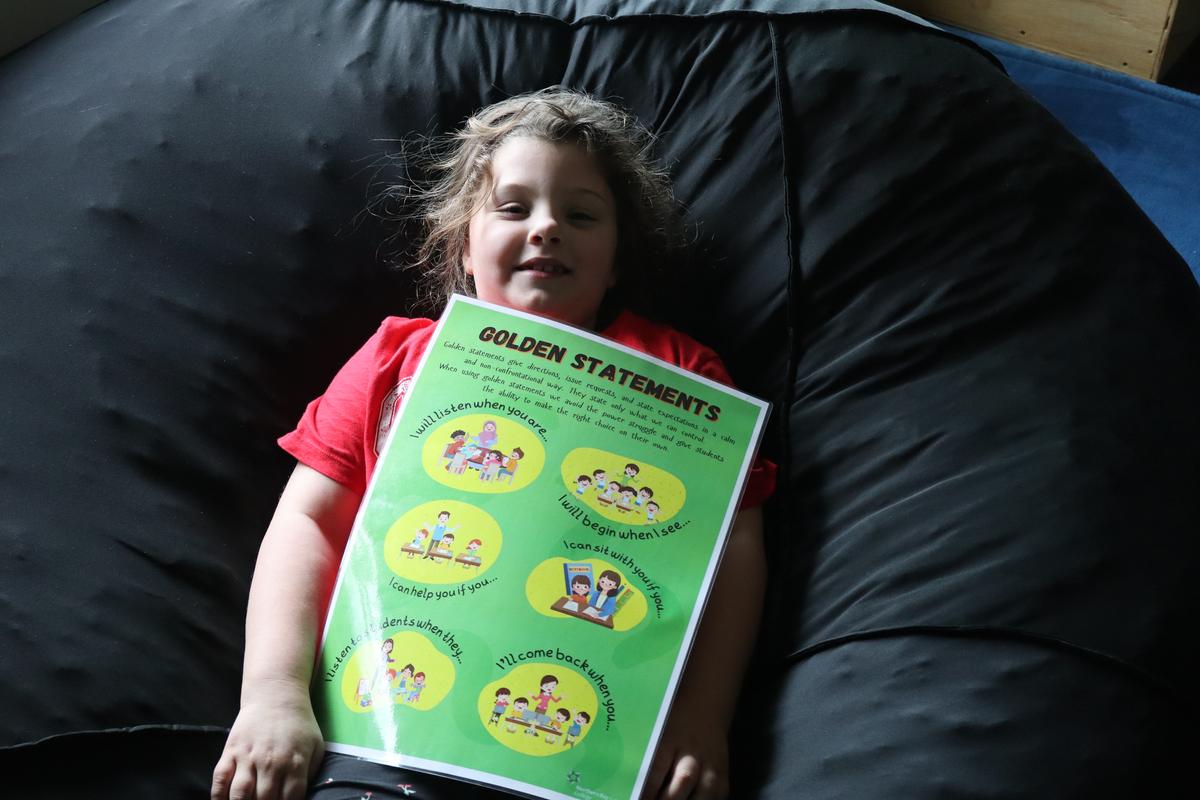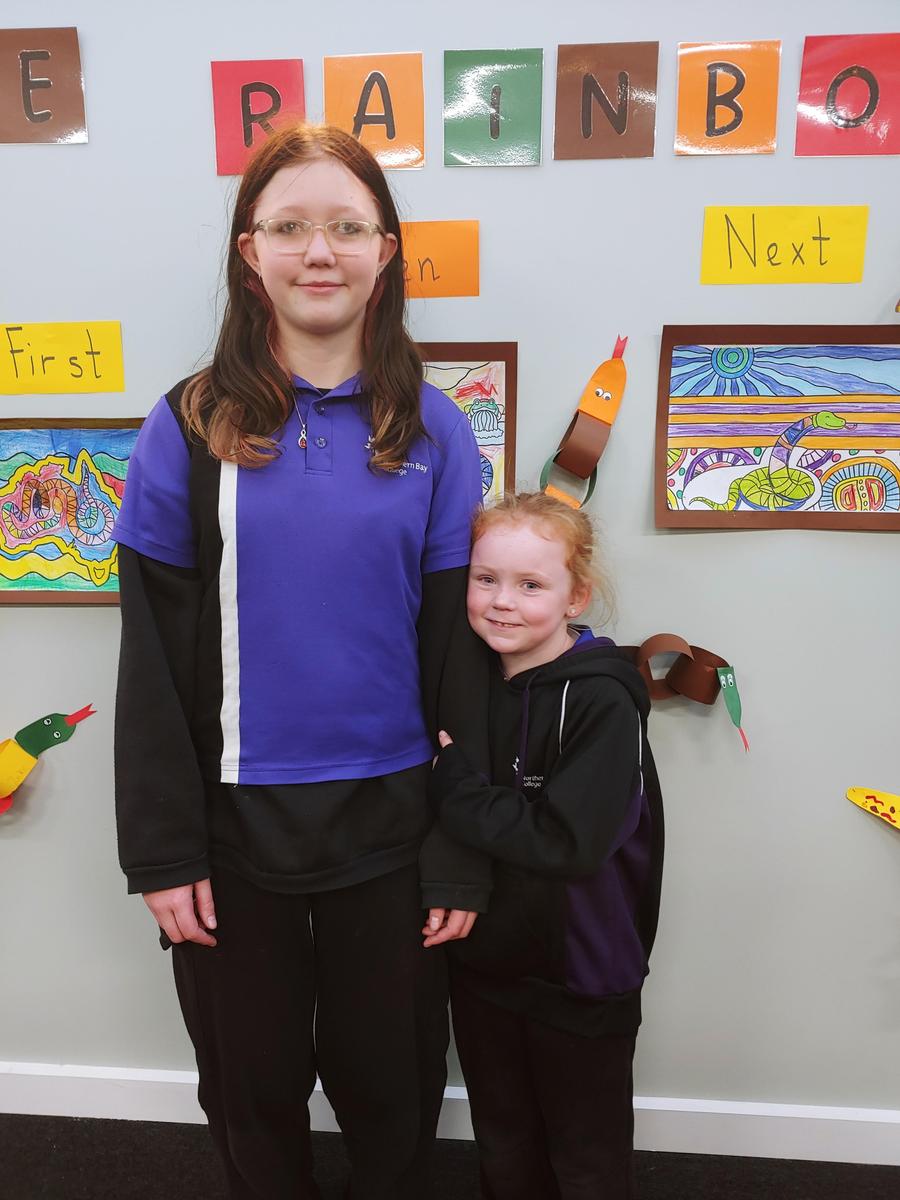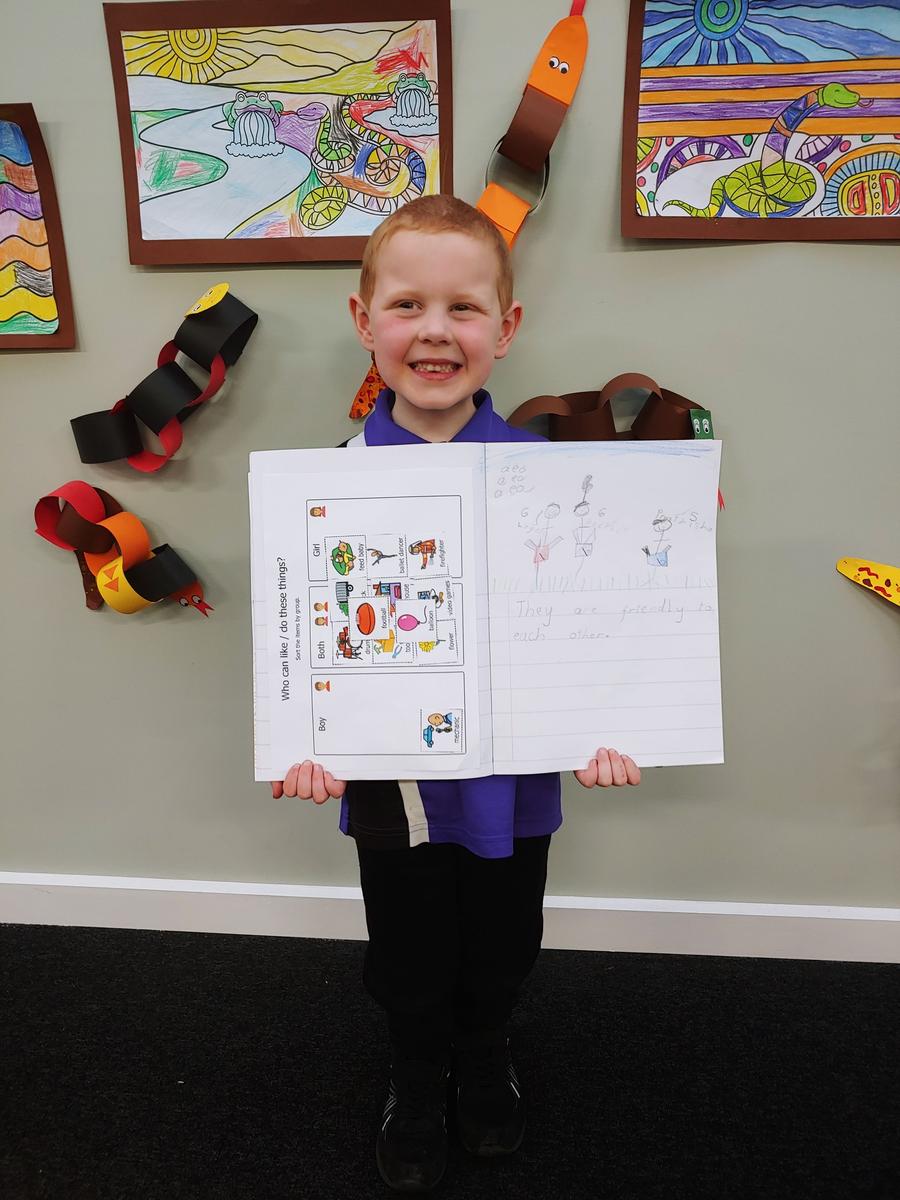Wellbeing & Inclusive Practices
November 2025

Wellbeing & Inclusive Practices
November 2025
Clear Directions in a Clam, Respectful way
Golden statements explain what an adult will do when students follow a specific instruction. These statements prevent power struggles and encourage students to make positive choices. For example:
I will… when…
I can… when…
I’m ready to… when…


Golden Statements at Northern Bay College
Golden Statements at Home For 5–9 Year Olds
Golden Statements at Home For 10–18 Year Olds
Indi, AC and Hendrix from HB1 and Dean and Eleanor from HC3 take a moment on their final day of term (and an exciting casual dress day!) to share why Golden Statements are important to them!


Freya Nicholas
Tallis Learning and Adjustment Coach 5/6
Term 3 Focus
At Northern Bay College, we are proud to be a Respectful Relationships school. Each term, our Social and Emotional Learning (SEL) program focuses on age-appropriate themes that build the skills and knowledge students need to grow into respectful, resilient, and caring young people.
In Term 3, the focus across all year levels has been on Gender and Identity and Positive Gender Relationships. These lessons are an important part of equipping students to understand themselves, relate respectfully to others, and challenge harmful stereotypes and behaviours.
Foundation to Grade 2
Our youngest learners explored the concepts of gender norms and stereotypes, learning how these ideas can shape the way people are treated. Through stories, games, and guided discussions, they practised ways to build positive gender relationships—emphasising fairness, kindness, and respect for everyone.
Grades 3 and 4
Students in Grades 3–4 built on these foundations by looking more closely at gender stereotypes and pressures. Lessons encouraged them to recognise when stereotypes appear in daily life and to think critically about how they can respond. They also practised how to speak up, show respect, and seek help when faced with unfair treatment
Grades 5 and 6
The senior primary students engaged with more complex ideas about gender inequality and discrimination. They discussed how stereotypes can sometimes lead to gender-based violence or power imbalances and explored strategies for challenging these issues safely. Students also learnt the importance of knowing when and how to ask for help and support
Why this matters
The SEL program helps children and young people develop lifelong skills in respect, resilience, and empathy. By learning how to identify stereotypes, challenge pressures, and stand up for fairness, our students are better prepared to build positive relationships in school and beyond.
Together, we are helping our students grow into confident, respectful, and caring members of the community.
Students’ Perspective


“I’m Alaska Bower. I am a student and will be writing about my past few SEL lessons and what stood out. The topic I am about to write about is Violence. What stood out for me was how much the students knew about the different types of violence, especially sexual violence. We went over what is violence and what is not. I personally noticed that some students were feeling uncomfortable with the conversation. Despite this, they stayed on topic. Some were surprised at what was violence, as they thought it wasn’t something heard or done often. Overall, the lesson taught us many things and really brought these tough conversations to light.” Alaska Bower, 12yo – Y6 WD4


Logan, 6yo – Prep WA2
Picture of logan with his Sel book showing his understanding of healthy friendships.


Eva Méndez Navarro (She/her)
Mental Health and Wellbeing Leader